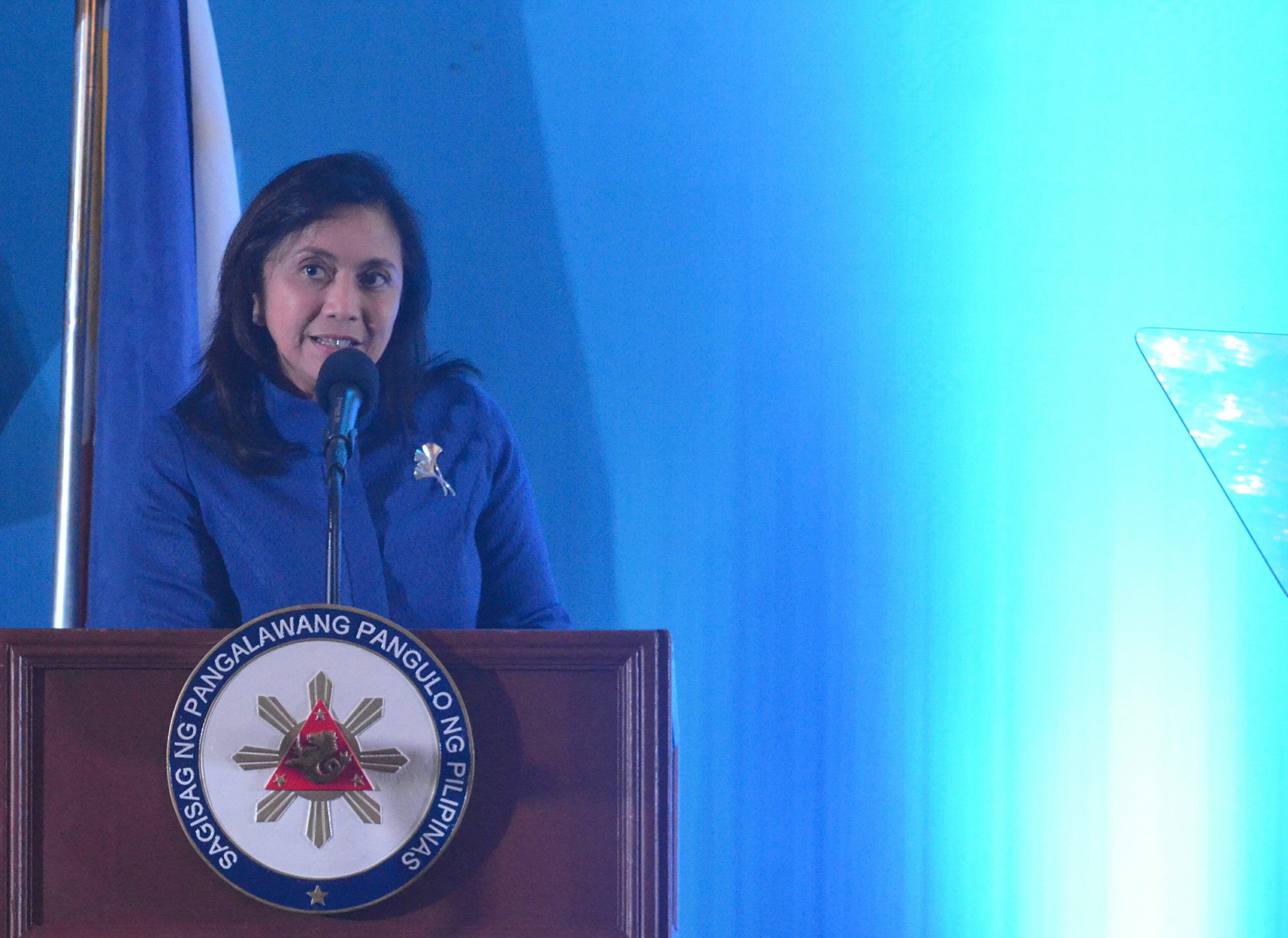SUMMARY
This is AI generated summarization, which may have errors. For context, always refer to the full article.

MANILA, Philippines – Lawmakers should pass an anti-political dynasty law first before they pursue amendments to the Constitution to pave the way fo federalism, Vice President Leni Robredo said on Friday, March 2.
Why prioritize the anti-dynasty law: Robredo is worried legislators are now focused on charter change yet the 1987 Constitution’s anti-dynasty provision has not been implemented because there is no enabling law.
The Vice President said this may pose more “dangers” for the Philippines, where provinces are ruled by political clans. (READ: Robredo: No need to overhaul Constitution)
“Bago mag-usap tungkol sa federalism, asikasuhin muna iyong political dynasties, kasi ano iyon, basic, in the sense na the 1987 Constitution requires that, iyong anti-political dynasty law. Pero hindi pa naipapasa,” the Vice President told CNN Philippines’ The Source aired on Friday.
(Before we even talk about federalism, let’s first focus on political dynasties because that is basic, in the sense that the 1987 Constitution requires an anti-political dynasty law. But the law has not been passed.)
“Hindi pa iyon napapasa, pero papalitan na iyong Constitution. Parang sa akin, mas maraming danger na ipo-pose kaysa sa kabutihan na magagawa (The law has not been passed, but they want to change the Constitution already. For me, this will pose more dangers than benefits),” she added.
Why lawmakers have not passed the law: Article II Section 26 of the Constitution states: “The State shall guarantee equal access to opportunities for public service, and prohibit political dynasties as may be defined by law.”
But this provision has not been properly implemented in the country. With 78% of members of the House of Representatives belonging to dynasties, lawmakers have been hesitant to pass a law that would fulfill this constitutional provision.
Senators began consulting experts last month regarding the anti-dynasty bills that have been filed under the current 17th Congress.
A new class of clans will emerge: Robredo, who was Camarines Sur 3rd District representative before she became vice president, warned that federalism without and anti-dynasty law would strengthen political clans and cause “fiefdoms” to thrive in the country.
“Kapag hindi nagpasa ng ganoon tapos nagkaroon tayo ng federal states, parang pinapalakas pa natin iyong [political clans]. Baka maging parang fiefdom siya,” said Robredo.
(If we do not pass a law like that and then we will have federal states, it’s like we’re strengthening the political clans. They may turn into fiefdoms.)
The Vice President was not against the shift to federalism per se, but she said the administration should sufficiently explain why it believes charter change is necessary to empower other regions, since other measures can be taken without amending the 1987 Charter.
Robredo agreed power and wealth should be decentralized away from “Imperial Manila” but she said the answer may just lie in amending certain provisions of the existing Local Government Code.
“Constitutional amendment ba iyong kailangan? Hindi ba ito kaya na amendment sa Local Government Code? Sa akin, especially at a time like this, parang mahirap magkaroon ng amendments to the Constitution. Kanino ba natin ititiwala iyong amendments?” asked the Vice President.
(Do we really need a constitutional amendment? Don’t we really need an amendment in the Local Government Code? For me, especially at a time like this, it’s hard to make amendments to the Constitution. To whom do we entrust the amendments?)
She said that at this time, the Philippines is “very divided as a nation.” The Vice President also said that constitutional amendments are “not something we can rush using political might,” referring to the administration and the ruling PDP-Laban’s bid to fast-track the process so that a plebiscite would be held this year or May 2019.
Responding to questions, Robredo she had nothing against dissolving the Office of the Vice President under a federal system of government, but she feared that human rights might become “diluted” as part of the constitutional amendments. – Rappler.com
Add a comment
How does this make you feel?
There are no comments yet. Add your comment to start the conversation.